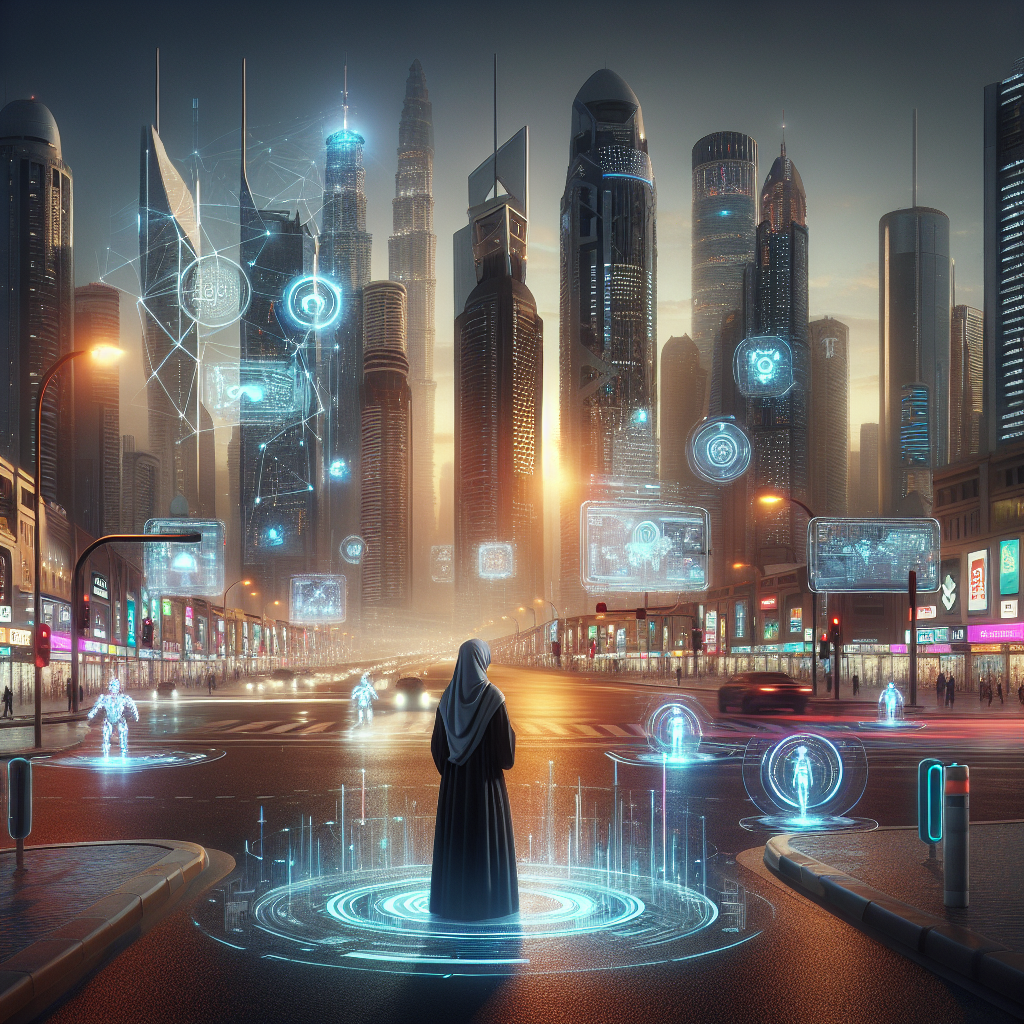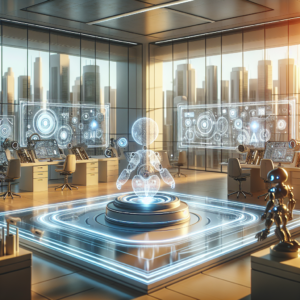Powerful A.I. Is Coming. We’re Not Ready.
Artificial Intelligence (A.I.) has been a subject of both fascination and concern for decades. As technology evolves at a breakneck pace, many experts are now warning that we are on the brink of a new era in A.I. development—one that promises groundbreaking advancements but also poses significant risks. The New York Times recently published an article highlighting the urgency of addressing these challenges before A.I. systems become deeply entrenched in our daily lives. This blog post will delve into the core themes presented in the article, exploring why we may not be ready for the powerful A.I. that is on the horizon.
The Current State of A.I.
As of 2023, A.I. systems are increasingly capable of performing tasks traditionally reserved for humans. From automated customer service agents to advanced machine learning algorithms capable of diagnosing diseases, A.I. is already transforming industries. However, the current A.I. is primarily considered “narrow” or “weak” A.I. These systems can excel in specific tasks but lack the general intelligence and emotional understanding that humans possess.
The Promise of General A.I.
The excitement surrounding the forthcoming advancements in A.I. centers on the concept of “general A.I.”—an A.I. that can understand, learn, and apply knowledge across a broad range of tasks, much like a human. Experts predict that achieving general A.I. could lead to revolutionary changes in various sectors, including healthcare, education, and transportation.
However, reaching this benchmark isn’t just about technological advancement. It requires careful consideration of ethical implications, societal impacts, and regulatory frameworks to ensure that the resulting systems benefit humanity as a whole.
The Risks Associated with Advanced A.I.
The New York Times article emphasizes that while the potential benefits of powerful A.I. are significant, the risks associated with these technologies are equally alarming. Some of the main concerns include:
1. Job Displacement
One of the most immediate concerns regarding the rise of A.I. is the displacement of jobs. As A.I. systems become capable of performing complex tasks, many traditional roles may become obsolete. Sectors like manufacturing, retail, and even professional services could see significant job losses. The challenge will be to retrain workers and create new opportunities in an A.I.-driven economy.
2. Ethical Dilemmas
Advanced A.I. also raises ethical concerns, particularly regarding decision-making. If A.I. systems are used to make critical decisions—such as in law enforcement, healthcare, or finance—who is accountable for their actions? There is a pressing need to establish ethical guidelines to govern A.I. behavior and ensure that they operate within a framework of fairness and justice.
3. Security Threats
As A.I. technology advances, so do the potential security threats associated with it. From hacking to misinformation campaigns, the misuse of A.I. can have far-reaching consequences. The possibility of creating autonomous weapons also raises the specter of warfare conducted by machines with minimal human oversight, a scenario that many experts consider a grave concern.
The Need for Regulation
The call for regulatory frameworks regarding A.I. development is becoming increasingly urgent. While innovation is crucial, it must not come at the expense of societal welfare. Policymakers, technologists, and ethicists must collaborate to create guidelines that ensure responsible A.I. development.
1. Transparent Development
A.I. systems must be developed transparently so that their functioning can be understood and scrutinized by the public. Transparency can help build trust in these technologies and enable stakeholders to address concerns proactively.
2. Inclusive Dialogue
Engaging a diverse range of voices in discussions about A.I. is critical. Stakeholders from various sectors—including academia, industry, and civil society—should contribute to the conversation on A.I. ethics, ensuring that different perspectives are considered.
3. Continuous Monitoring
As A.I. technologies evolve, so too should the regulations governing them. Continuous monitoring of A.I. systems’ performance and impact will be necessary to identify problems early and adjust policies accordingly.
Preparing for the Future
While the potential benefits of powerful A.I. are immense, the challenges posed by these technologies cannot be ignored. Preparing for the future involves not only technological innovation but also a commitment to ethical responsibility and social accountability.
1. Education and Awareness
Public awareness and education about A.I. are essential. By understanding how A.I. works and its implications, individuals can better navigate an increasingly automated world.
2. Emphasizing Human Skills
As A.I. continues to take over routine tasks, there will be an increasing emphasis on human skills that machines cannot replicate. Creativity, emotional intelligence, and critical thinking will become invaluable in the job market of the future.
3. Collaboration Across Disciplines
Addressing the challenges posed by A.I. will require collaboration across disciplines. Technology experts must work alongside ethicists, sociologists, and policymakers to develop a holistic approach to A.I. development and deployment.
Conclusion
The New York Times article sheds light on the powerful A.I. that is on the horizon and the urgent need for society to prepare for its arrival. While A.I. has the potential to revolutionize our world, we must tread carefully to ensure that these advancements benefit humanity as a whole. By fostering open dialogue, emphasizing ethical considerations, and advocating for responsible regulations, we can harness the power of A.I. while safeguarding our values and future. The time to act is now—before we find ourselves unprepared for the powerful A.I. that is coming.



